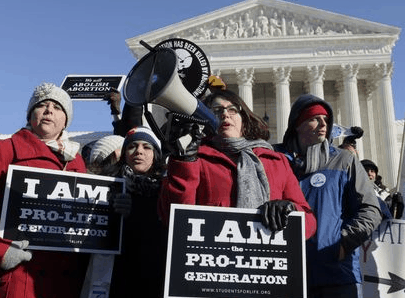
I’ll never forget the day the emptiness came.
Our church services had just concluded, and volunteers were beginning to clean. I sat alone in the worship center, hands trembling. That place within my soul once filled with passion for God was now a foreclosed home with only traces of the family that once lived therein.
The God who once seemed to breathe upon my neck was now a ghost in the distance, blurry and noiseless. And the church, a place of respite for me nearly all my life, was now a painful reminder of the absence I felt.
I decided to follow Jesus just before my 13th birthday, and I remember the moment of “yes, Lord” like it was yesterday. Kneeling with my dad next to my bed, a heat crept from my toes through my bent knees to the crown of my head. My breathing relaxed, and I felt the most wonderful peace.
The morning after my conversion I began searching for that warmth of God again, and the place I figured my journey should begin was the location where I believed God was most readily available: church.
I found God there on occasion. When I descended beneath the water’s surface at baptism, I sensed a shimmer of heat. I’d hear the Gospel in a new way during a sermon and feel the temperature rise. And yet, in adolescence and early adulthood, I never laid hold of that same God-presence from my conversion night.
The God I kept being introduced to was a decent chap, so long as you didn’t make Him mad. He tended to be a bit rigid and temperamental. I knew of a few of God’s tantrums, even once transforming a woman into a salt pillar for turning around when He told her not to.
My God was incapable of laughing at mistakes, smiling when I bumbled down the wrong path, or overlooking my misguided attempts to live the “good life.” Instead, the God I believed in peered over my shoulder, shaking His head and whispering, “Go ahead, but you’ll pay for it.”
I followed this God for more than a decade and a half before I stumbled upon that day—the day the emptiness came.
I spend a decent amount of time studying this textured and varied thing called “Christianity” in America. And I’ve realize I’m not the only one who has been visited by the emptiness.
I’ve seen it in the statistics. Demographers have warned for years that we’re seeing an exodus of young Christians from the faith and that negative perceptions about the Church and its members are metathesizing. But another giant shoe dropped in late 2012 when Pew Research announced the rise of the “Nones,” a label given to those who claim no religious affiliation. This is the fastest growing religious group in America now, and approximately a third of those under 30 count identify as such.
This group has also been called the “spiritual but not religious,” because many of them own Bibles, believe in God and say they pray regularly. They just aren’t finding spiritual vitality in the expected places such as church services and Bible study. They were visited by the emptiness and, after much wrestling, called it quits.
In 1820, the poet Percy Bysshe Shelley predicted religion would not be “o’erthrown” but simply become “unregarded.” Maybe Shelley was both poet and prophet.
The more I’ve thought about the “emptiness epidemic” I’m seeing, the more I wonder if our problem is more experiential than theological. Because, in my life, the best antidote to spiritual emptiness is not a new theological framework, but an encounter with the divine. You see, sometimes what we need is not just a new way to think about who God is, but a fresh encounter with the God who is.
The God of the Bible looks nothing like the fickle cardboard deity we’ve crafted. In Scripture, God shows up in floating axe heads and talking donkeys. God comes in burning bushes and water from desert rocks. In thunderstorms and on silent nights, God comes when and where people aren’t looking.
What’s more, God rarely shows up the same way twice. Sometimes God meets people in the wilderness and other times in the city. Once He even met a runaway preacher in a fish’s belly. God shouts at Samuel, but whispers to Elijah. God speaks audibly to Abraham and Isaac, but when Joseph takes the stage, God seems to catch laryngitis. The same God who meets Daniel in visions meets David in the wise words of an honest friend.
I thought of Pentecost and the band of doubting disciples huddled together around mere memories of their executed master. They were discussing what to do next, as if anyone knew, and then it happened. A wind swept through the room and they breathed it into their lungs, and when it came out again, it made words they did not know they knew. Sparks like struck flint flashed above their heads and made flames. The commotion was so loud that people rushed from every corner of the neighborhood to see what was causing it. After a while, the uproar died down, but not before the emptiness of several thousand was filled with faith.
Did we believe in a God who behaves in such a way, who rushes in when we least expect it? Is God still sweeping through windows and starting fires?
If you’re experiencing an emptiness epidemic, maybe you just need an encounter with the Firemaker. Where is the one who lit up a burning bush? Who formed a pillar in the desert? Where is the one who BBQ-ed a bull on an water-soaked altar, who came in flaming tongues on Pentecost? Where are those places where God might be striking flint or rubbing sticks together? And how can you join that God in making sparks fly?
This day could be your Pentecost. This moment could be the one that shakes you from our slumber, that fills the emptiness. This place you’re in might be where you regain confidence in your faith, where you realize what you’ve always suspected: that the God who created you is better than the God you’ve created.






















